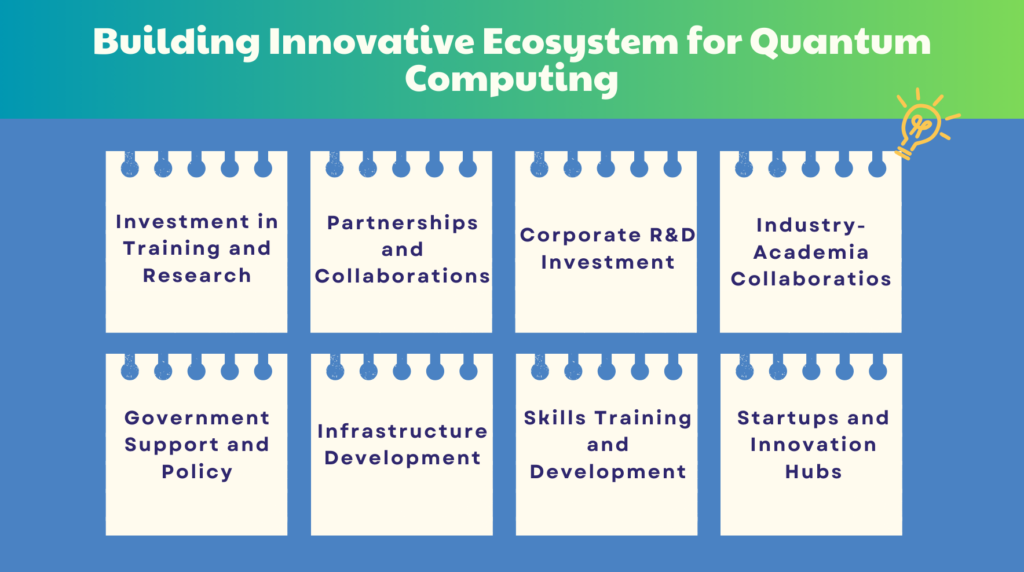Quantum computing is poised to revolutionize computation across industries. Sectors such as chemicals, finance, life sciences, and mobility are at the forefront of the earliest impact of quantum computing.

Leveraging the principles of quantum mechanics, such as superposition and entanglement, quantum computing represents a revolutionary jump in computational power. It shows the potential to solve complex problems that are practically impossible for classical computers. While quantum computing is in its infancy, its capability has already influenced various industries.
According to Fortune Business Insights, the global market of quantum computing is forecast to grow from US$ 1,160.1 million in 2024 to US$ 12,620.7 million by 2032, at a CAGR of 34.8% during the forecast period.
Industries such as chemicals, life sciences, finance, and mobility are likely to witness the earliest impact of quantum computing and could gain up to US$2 trillion by 2035. The McKinsey analysis for the third annual Quantum Technology Monitor revealed that private investment in quantum computing has dropped while public investment surged.
Understanding Quantum Computing
Built on quantum bits, or qubits, quantum computing is a technology that leverages computer hardware and algorithms to solve complex problems. Quantum computers use the unique behavior of quantum physics to compute, bringing previously unattainable capabilities to regular programming approaches.
Classical computers work with a limited set of inputs, utilize an algorithm and provide an answer. The bits that encode the inputs do not share information about one another. On the other hand, various calculations can be performed concurrently using quantum computers as qubits interact with one another when data is fed into them.
This explains why quantum computers can operate at a significantly higher speed than traditional computers.
Also Read: Maximizing AI: The CEO’s Next Big Thing
Advantages of Quantum Computing:
- Faster than classical computers
- Solve complex optimization problems
- Energy-efficient than traditional computers
Quantum Computing Across Industries
There are several major players in quantum computing revolutionizing their business functions. According to a McKinsey survey, 72 percent of tech executives, investors, and academicians believe they will see a fully fault-tolerant quantum computer by 2035.
Quantum computing has shown its potential across industries, addressing numerous problems. These range from optimization to simulation to machine learning. Here is how quantum computing is transforming industries:
Pharmaceuticals and Healthcare
With quantum computing, drug discovery procedures could undergo a significant revolution. The technology can more accurately simulate molecular interactions thanks to their extreme complexity and multitude of variables. These simulations seem to be too much for conventional computers to handle but can be completed more quickly by quantum computers.
Quantum computing can minimize the time and expense required to introduce new medications to the market. “Harnessing the power of quantum computing can deliver the potential to significantly accelerate the timelines for, and enhance the quality of, various stages of pharmaceutical research and development processes,” Cynthia Pussinen, Honeywell Vice President and General Manager of Life Sciences and Specialty Chemicals said.
For example, in 2019, it was reported that Google’s quantum computer, Sycamore, solved a complex problem in 200 seconds, which would take the world’s most powerful supercomputer 10,000 years. The speed accomplished by the computer represents “quantum supremacy.” This significant achievement creates new avenues for drug discovery simulation of molecular interactions.
Logistics and Supply Chain
Quantum computing has the potential to solve complex optimization problems like supply chain management and route planning. In sectors like manufacturing, retail, and logistics, this can result in large cost reductions and efficiency gains.
For example, the German automotive manufacturer Volkswagen uses a quantum computer for traffic optimization. Its traffic management system utilizes quantum algorithms that analyze huge amounts of traffic data and suggest the most efficient routes in real-time.
Cybersecurity
Quantum computing presents both threats and opportunities for cybersecurity. One of the most profound impacts of quantum technology on data security lies in cryptography.
Conventional encryption techniques, such as elliptic curve cryptography (ECC) and Rivest-Shamir-Adleman (RSA), rely on the complexity of resolving challenging mathematical puzzles. But Shor’s algorithm and other quantum computers can address these problems more quickly, rendering the current encryption techniques ineffective.
The National Institute of Standards and Technology (NIST), for instance, is working on post-quantum cryptographic algorithms for the security of data against potential quantum attacks, ensuring the future of digital security.
Building an Innovative Ecosystem for Quantum Computing
Quantum computing will present enormous advances allowing organizations to discover its potential. Let us have a look at the strategies to foster an innovative ecosystem for quantum computing.

Investment in Training and Research
In 2023, 3,67,000 people graduated with quantum technology degrees. The number of universities with quantum technology programs also surged 8.3 percent, to 195, while those offering master’s degrees in quantum technology grew by 10 percent, to 55.
Most of the quantum technology graduates are from the EU and the UK, which explains why scientists from EU institutions have contributed most often to quantum-relevant publications.
Partnerships and Collaborations
Another approach to building an innovative ecosystem for quantum computing is partnerships between industry, academia, and government. Such collaborations will expedite quantum technology development, translating academic research into practical applications.
Other factors in developing an innovative ecosystem for quantum computing are:
- Investment in R&D: Encouraging companies to invest in R&D for quantum computing technologies is essential.
- Startups and Innovation Hubs: Fostering a startup ecosystem through funding, mentorship, and incubation can establish innovation hubs while nurturing emerging quantum technologies and business models.
- Government Funding and Grants: It is also crucial to allocate government funding and grants for quantum computing research and development.
- Infrastructure Development: Investment in building quantum computing infrastructure, including networks, quantum processors, and cloud-based quantum services is essential.
The Bottom Line
With its ability to process and solve complex problems faster than classical computers, quantum computing is revolutionizing the world of computation. From pharmaceuticals and logistics to cybersecurity, the quantum computing effect will be profound. This will significantly lead to more efficient, secure, innovative industry solutions.
As investment in technology, research and development continues, the future holds exciting possibilities for quantum technology.
Would you like more such interesting insights? Subscribe to The Future Talk.